featured
D.C. Hemp Company Sues Feds Over ‘Unworkable Standard’ Created By Marijuana Budget Rider
Published
18 hours agoon

A hemp retailer in Washington, D.C. is suing the the federal government over a budget restriction that prevents local officials from establishing and regulating a retail marijuana market.
Capitol Hemp filed the suit in U.S. District Court for the District of Columbia on Thursday, seeking a declaration from a federal judge that the congressional budget rider doesn’t stand in the way of D.C. adopting legislation to regulate hemp.
“Although hemp was removed from the federal Controlled Substances Act in 2018, the District of Columbia has continued to take enforcement actions against hemp without adopting any legislation specifically addressing it. As a direct result of such enforcement,” the company’s complaint says, Capitol Hemp “has been named as a defendant in a related federal case.”
At the center of the lawsuit is the so-called Harris rider, a longtime ban blocking Washington, D.C. from creating a system of regulated adult-use marijuana sales. It’s named after Rep. Andy Harris (R-MD), who was behind the initial ban in 2014. It was renewed last year after earlier efforts to remove the longtime provision.
Capitol Hemp is asking the court to declare the language of the Harris amendment “unconstitutionally vague” because it employs the term “tetrahydrocannabinols derivative,” which the company asserts is “lacking any established statutory definition or limiting principle.”
It further says the federal restriction’s reference to “any Schedule I substance…or any tetrahydrocannabinols derivative” is “ambiguous and unworkable” when read in conjunction with D.C.’s Controlled Substances Act.
The situation, the complaint says, “creates an ambiguous and unworkable standard that prevents the District from determining which substances it may lawfully regulate.”
Specifically, Capitol Hemp’s challenge says, if the federal restriction is interpreted to include all THC, it “could be construed to bar the District from regulating or even clarifying the status of lawful hemp-derived cannabinoids such as delta-8 THC.”
The suit, reported earlier by Politico, comes as both federal and state lawmakers increasingly move to crack down on markets for intoxicating hemp products, which can sometimes contain as much psychoactive THC as state-regulated marijuana products. The situation—which many have called a loophole resulting from the 2018 Farm Bill’s legalization of hemp nationwide—has raised broad public health concerns, in large part because the products are often untested and easily available to minors.
At the state level, multiple states—from California to Florida—have moved to ban intoxicating cannabinoids in recent months. In Texas, the legislature recently delivered a bill to the governor that would outlaw all consumable hemp-derived cannabinoid products containing any detectable THC.
And in Congress, a powerful GOP-led House committee recently amended a report for a spending bill containing provisions that hemp stakeholders say would upend the industry. The report clarifies that the panel does not intend to prohibit non-intoxicating cannabinoid products with “trace or insignificant amounts of THC” that were federally legalized during the first Trump administration.
Harris, meanwhile—namesake of the Harris rider at issue in the current suit—complained at the hearing that the Farm Bill “has resulted in the proliferation of intoxicating cannabinoid products, including delta-8 and hemp flower, being sold online and in gas stations nationwide under the false guise of being ‘USDA approved.’”
“As many states have stepped in to curb these dangerous project products from reaching consumers, particularly children, it’s time for Congress to act to close this loophole while protecting industrial hemp industry,” Harris said. “Reports that the included language would destroy legitimate businesses are simply not true, and that’s clear to anyone closely reading the carefully drafted language that I believe threaded the needle.”
Language in the bill itself would still effectively eliminate the most commonly marketed hemp products within the industry, as even non-intoxicating CBD items that are sold across the country typically contain trace amounts of THC. Under current law, those products are allowed if they contain no more than 0.3 percent THC by dry weight.
Jonathan Miller, general counsel at the U.S. Hemp Roundtable, told Marijuana Moment that the new report language doesn’t fully address the industry’s concerns, pointing out that it “has no binding impact on the law, and this is especially important because, over the last several years, [the Food and Drug Administration, or FDA] has continually ignored the report language when it comes to hemp and CBD.”
The hemp language is largely consistent with appropriations and agriculture legislation that was introduced, but not ultimately enacted, under the last Congress.
Hemp industry stakeholders rallied against that proposal, an earlier version of which was also included in the base bill from the subcommittee last year. It’s virtually identical to a provision of the 2024 Farm Bill that was attached by a separate committee last May via an amendment from Rep. Mary Miller (R-IL), which was also not enacted into law.
There are some differences between the prior spending bill and this latest version for 2026, including a redefining of what constitutes a “quantifiable” amount of THC that’d be prohibited for hemp products.
It now says that a quantifiable amount is “based on substance, form, manufacture, or article (as determined by the Secretary of Health and Human Services in consultation with the Secretary of Agriculture),” whereas it was previously defined as an amount simply “determined by the Secretary in consultation with the Secretary of Health and Human Services.”
The proposed legislation also now specifies that the term hemp does not include “a drug that is the subject of an application approved under subsection (c) or (j) of section 505 of the Federal Food, Drug, and Cosmetic Act (21 U.S.C. 355),” which seems to carve out an exception for Food and Drug Administration- (FDA) approved drugs such Epidiolex, which is synthesized from CBD.
A leading alcohol industry association, meanwhile, has called on Congress to dial back language in the House spending bill that would ban most consumable hemp products, instead proposing to maintain the legalization of naturally derived cannabinoids from the crop and only prohibit synthetic items.
Wine & Spirits Wholesalers of America (WSWA) President and CEO Francis Creighton said in a press release on Thursday that “proponents and opponents alike have agreed that this language amounts to a ban.”
“By pushing a rapidly evolving industry back into the shadows, Congress is creating even more chaos in the marketplace, undermining state initiatives and punishing responsible actors,” he said. “We urge the full House to reconsider this approach. States can regulate intoxicating products safely and effectively through systems that preserve consumer trust and public safety. It’s time for Congress to follow their lead, not override their authority.”
Members of Wine & Spirits Wholesalers of America (WSWA) also met with lawmakers and staffers in April to advocate for three key policy priorities that the group says is based on “sound principles of alcohol distribution.” They include banning synthetic THC, setting up a federal system for testing and labeling products and establishing state-level power to regulate retail sales.
Separately, key GOP congressional lawmakers—including one member who supports marijuana legalization—don’t seem especially concerned about provisions in a new spending bill that would put much of the hemp industry in jeopardy by banning most consumable products derived from the plant.
Miller at the U.S. Hemp Roundtable, told congressional lawmakers in April that the market is “begging” for federal regulations around cannabis products.
At the hearing, Rep. James Comer (R-KY) also inquired about FDA inaction around regulations, sarcastically asking if it’d require “a gazillion bureaucrats that work from home” to regulate cannabinoids such as CBD.
A report from Bloomberg Intelligence (BI) last year called cannabis a “significant threat” to the alcohol industry, citing survey data that suggests more people are using cannabis as a substitute for alcoholic beverages such a beer and wine.
Last November, meanwhile, a beer industry trade group put out a statement of guiding principles to address what it called “the proliferation of largely unregulated intoxicating hemp and cannabis products,” warning of risks to consumers and communities resulting from THC consumption.
Read the full complaint below:
Attorneys General Group Hosts Meeting On State-Level Regulation Of Intoxicating Hemp Products

Author: mscannabiz.com
MScannaBIZ for all you Mississippi Cannabis News and Information.
You may like
-


Oregon Officials Will Appeal Court Decision That Overturned Marijuana Industry Labor Peace Law
-


Terrabis Opening 5th Illinois Dispensary in Mundelein
-
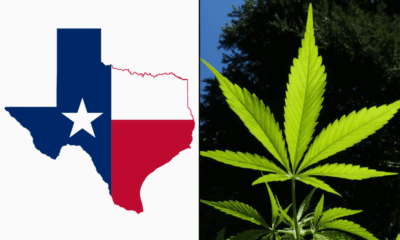

Texas Governor Still Won’t Say If He’ll Sign Hemp Ban Bill, But Thinks There Are ‘Meaningful’ Concerns On Both Sides Of The Debate
-


A Cannabis Match Made In Heaven
-


Vireo Growth Provides Corporate Update After Closing All Merger Transactions
-
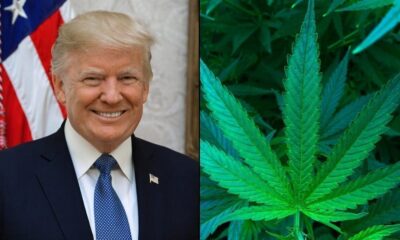

Most Marijuana Consumers Oppose Trump’s Cannabis Actions So Far, But Rescheduling Or Legalization Could Bolster Support, Poll Shows
featured
Oregon Officials Will Appeal Court Decision That Overturned Marijuana Industry Labor Peace Law
Published
4 minutes agoon
June 17, 2025
Oregon officials have notified a federal appeals court that they are challenging a lower judge’s ruling striking down a voter-approved law that required licensed marijuana businesses to enter into labor peace agreements with workers and mandated that employers remain neutral in discussions around unionization.
In a notice of appeal submitted to the U.S. Court of Appeals for the Ninth Circuit late last week, attorneys for Oregon Gov. Tina Kotek (D), Attorney General Dan Rayfield (D) and Oregon Liquor and Cannabis Commission’s (OLCC) Dennis Doherty and Craig Prins said they will be contesting the decision by the U.S. District Court for the District of Oregon last month.
After two marijuana businesses—Bubble’s Hash and Ascend Dispensary—filed a lawsuit in the district court challenging the implementation of Measure 119, a federal judge sided with the plaintiffs, finding that the law unconstitutionally restricts free speech and violates the federal National Labor Relations Act (NLRA).
Now the state is pushing back, advising the Ninth Circuit that it will be appealing, as Law360 first reported. Details about the merits of the appeal are currently unknown. But the court gave the state a deadline of September 3 to provide an opening brief, and the plaintiffs must file a reply brief by October 3.
Under the currently paused law, a marijuana businesses that was unable to provide proof of a labor peace agreement could have been subject a denial or revocation of their license.
In an order last month, the district court judge walked through various components of the legal arguments from both sides and ultimately agreed that the Oregon law is preempted by the NLRA, which is meant to provide protections for workers who want to unionize—but specifically preserves the right for “uninhibited, robust, and wide-open debate in labor disputes.”
By mandating neutrality from employers in labor discussions, that constitutes a violation of the NLRA, the judge ruled.
“Measure 119 does not distinguish between permissible employer speech and threatening or coercive speech,” Judge Michael Simon said. “Measure 119 is not limited to restricting only threatening, coercive, false, or misleading speech, but instead prohibits all speech by employers that is not ‘neutral’ toward unionization.”
On the question of whether the law violates First Amendment protections under the U.S. Constitution, the cannabis companies argued that “Measure 119 is a content-based restriction on speech that is subject to strict scrutiny, and that Defendants fail to provide a compelling government interest requiring this restriction.”
Measure 119 passed with about 57 percent of the vote last November. A regional chapter of United Food and Commercial Workers (UFCW)—UFCW Local 555—had submitted more than 160,000 signatures to qualify the measure for ballot placement last year.
During the Oregon legislature’s 2023 session, lawmakers declined to enact a bill containing similar provisions. UFCW lobbied for that legislation, and it decided to mount a campaign to let voters decide on the issue this year after that effort failed.
UFCW pressed legislators to enact a bill to codify the labor protections in 2023. And after it was effectively killed by a top House Democrat, it announced that it would be leading a recall effort to oust him.
Read the text of the Oregon officials’ notices of appeal below:
Photo courtesy of Brian Shamblen.

Author: mscannabiz.com
MScannaBIZ for all you Mississippi Cannabis News and Information.
featured
Terrabis Opening 5th Illinois Dispensary in Mundelein
Published
1 hour agoon
June 17, 2025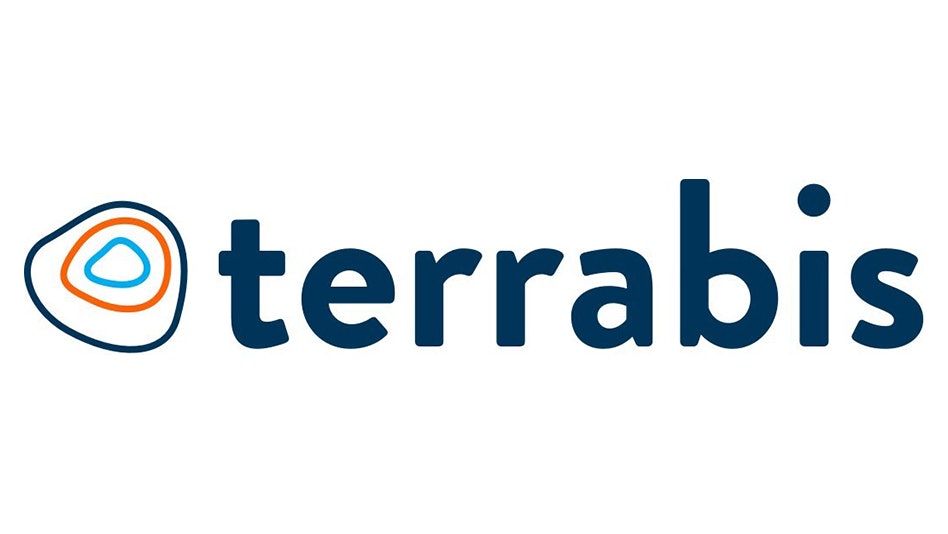
[PRESS RELEASE] – MUNDELEIN, Ill., June 17, 2025 – Terrabis, a leading multistate cannabis operator, announced its newest milestone with the approval to open its fifth Illinois dispensary. The new location in Mundelein will open its doors later this year, marking another significant step in the company’s strategic growth within the state’s thriving cannabis market.
The new store will be at 3210 W. Route 60 on Mundelein’s northwest side. Conveniently located within the bustling Mundelein Crossings shopping center, the site offers easy access for residents and visitors.
The upcoming dispensary in Mundelein will join Terrabis’ existing four dispensaries in Illinois, further solidifying the company’s presence in the Midwest. This milestone follows a period of remarkable growth for Terrabis, including the successful launch of its own Terrabis flower line earlier this year.
Over the past eight months, Terrabis has opened three new locations in Illinois, underlining its commitment to delivering a consistent and high-quality cannabis experience to customers. The Mundelein location will bring the Terrabis network to nine dispensaries across Illinois and Missouri.
“This achievement reflects our dedication to responsible expansion and delivering on our mission to create truly unique cannabis experiences,” Terrabis CEO Dan Ambrosino said. “Mundelein is an exciting addition to our portfolio of Illinois dispensaries, and we look forward to continuing our growth while maintaining our core values of community impact, exploration and wellness.”
Mundelein has long been recognized as playing a pivotal role in shaping Illinois’ cannabis culture. As Terrabis prepares to open its fifth Illinois dispensary in this influential town, the company is excited to contribute to the area’s growing reputation as a hub for cannabis innovation.
Terrabis’ continued Illinois expansion signals the company’s ongoing success and dedication to bolstering local communities by fostering economic development and job creation. The company is committed to driving ingenuity within the cannabis industry and setting a benchmark for operational excellence in dispensary management. By prioritizing community impact and industry leadership, Terrabis is creating lasting value for both its customers and the regions it serves.
Terrabis is a privately held, leading, multistate cannabis operator with a corporate office in Chicago. The company has dispensaries in Illinois and Missouri, with a product manufacturing facility in Kansas City, Mo.

Author: mscannabiz.com
MScannaBIZ for all you Mississippi Cannabis News and Information.
featured
Texas Governor Still Won’t Say If He’ll Sign Hemp Ban Bill, But Thinks There Are ‘Meaningful’ Concerns On Both Sides Of The Debate
Published
2 hours agoon
June 17, 2025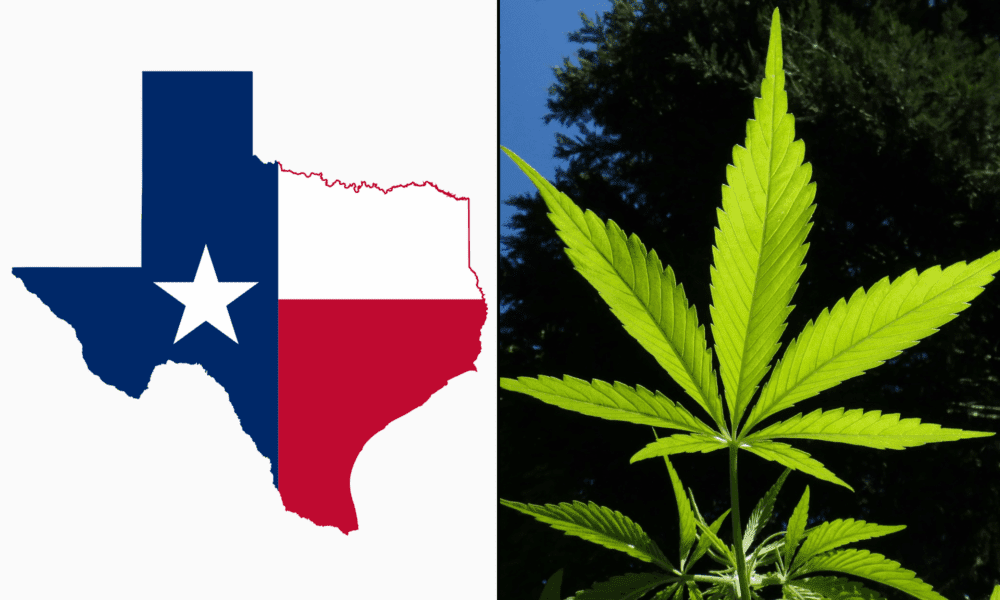
The governor of Texas still hasn’t made a decision on a bill lawmakers recently sent to his desk that would ban consumable hemp products with any traces of THC—but he says there are “meaningful positions and concerns on both sides of the issue.”
As advocates and stakeholders continue to push for a veto of SB 3, which they say would effectively eradicate the hemp market in Texas, Gov. Greg Abbott (R) said on Monday that he has hundreds of bills to review and he “hasn’t gotten to” the cannabis legislation yet.
“I’ll tell you this: Listen, there are meaningful positions and concerns on both sides of the issue, and I’ll look into all of those and evaluate all of those,” he told reporters during a Q & A session following a bill signing ceremony for an unrelated measure.
That largely echoes comments Abbott made earlier this month, when he said SB 3 “is one of literally more than a thousand bills on my desk—all of which need my careful consideration and evaluation.”
“I will give all of those pieces of legislation the consideration and time that they deserve,” the governor said at the time, while sitting beside one of the measure’s most vocal supporters, Lt. Gov. Dan Patrick (R).
But it’s notable that, in his latest comments, he seemed to acknowledge that supporters and opponents of the measure have “meaningful” arguments that he’s taking into account.
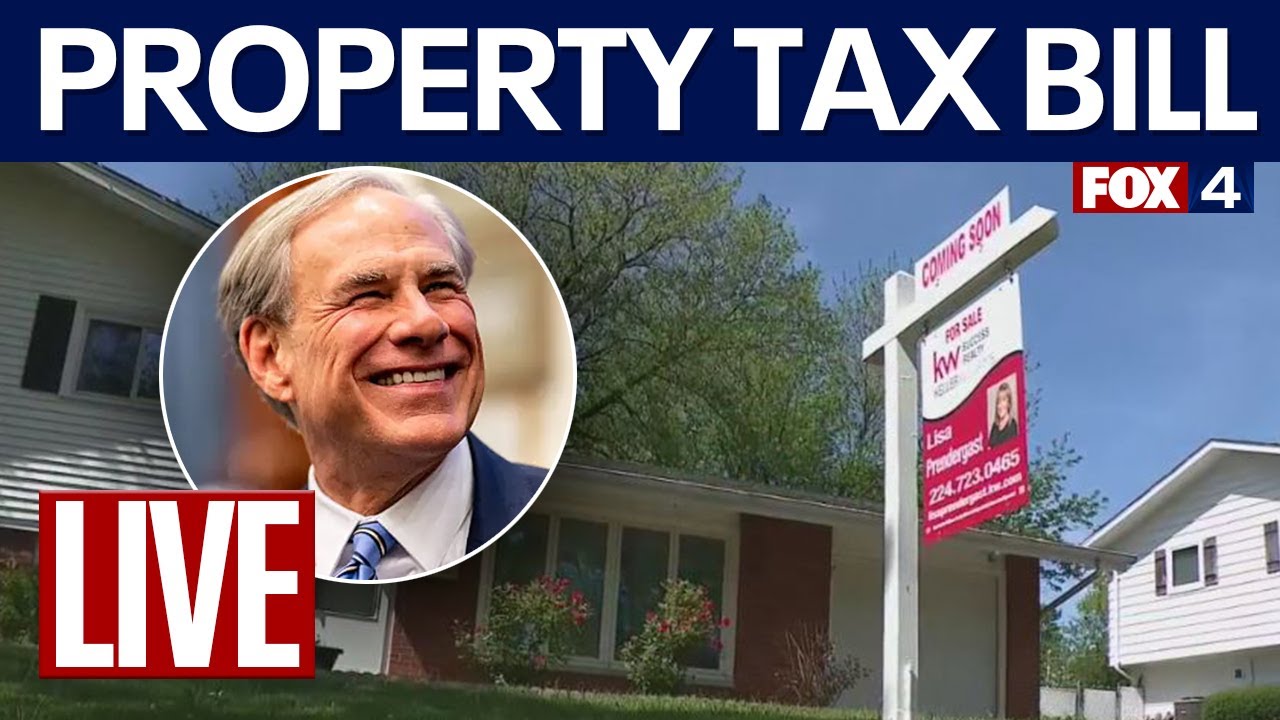
Also this month, hemp advocates and stakeholders delivered more than 100,000 petition signatures asking Abbott to veto the measure. Critics of the bill have said the industry—which employs an estimated 53,000 people—would be decimated if the measure becomes law.
The governor has three options for the proposal: sign it, veto it or allow it to take effect without his signature. The deadline for his decision is this Sunday, June 22.
Last month, a spokesperson for the governor separately declined to disclose Abbott’s plan for the bill, saying only that he “will thoughtfully review any legislation sent to his desk.”
Texas lawmakers legalized the sale of consumable hemp in 2019, following enactment of the 2018 federal Farm Bill, which legalized the plant nationwide. That’s led to an explosion of products—including edibles, drinks, vape products and cured flower—sold by an estimated 8,000 retailers.
Military veterans advocates, including Texas Veterans of Foreign Wars, have also called on the governor to veto the hemp ban, saying it “would cause irreversible harm to communities across the state.”
Farmers have also said the prohibition would devastate a key sector of the state’s agriculture industry.
Meanwhile, a recent poll commissioned the Texas Hemp Business Council (THBC) found that Texas Republican primary voters oppose the proposal to ban hemp products containing THC.
—
Marijuana Moment is tracking hundreds of cannabis, psychedelics and drug policy bills in state legislatures and Congress this year. Patreon supporters pledging at least $25/month get access to our interactive maps, charts and hearing calendar so they don’t miss any developments.![]()
Learn more about our marijuana bill tracker and become a supporter on Patreon to get access.
—
Abbott separately signed a bill into law last week to create a state-backed research consortium to conduct clinical trials on ibogaine as a possible treatment for substance use disorders and other mental health conditions. The ultimate goal of the project is to develop the psychedelic into a prescription drug with federal Food and Drug Administration (FDA) approval, with the state retaining a portion of the profit.
Lawmakers also recently passed a bill to significantly expand the state’s medical marijuana program, sending it to the governor.
The measure would expand the state’s list of medical cannabis qualifying conditions to include chronic pain, traumatic brain injury (TBI), Crohn’s disease and other inflammatory bowel diseases, while also allowing end-of-life patients in palliative or hospice care to use marijuana.
Separately in Texas, a House committee approved a Senate-passed bill last month that would prohibit cities from putting any citizen initiative on local ballots that would decriminalize marijuana or other controlled substances—as several localities have already done despite lawsuits from the state attorney general.
Under the proposal, state law would be amended to say that local entities “may not place an item on a ballot, including a municipal charter or charter amendment, that would provide that the local entity will not fully enforce” state drug laws.
While several courts have previously upheld local cannabis decriminalization laws, an appellate court comprised of three conservative justices appointed by the governor has recently pushed back against two of those rulings, siding with the state in its legal challenge to the marijuana policy in Austin and San Marcos.
Despite the ongoing litigation and advancement of the House and Senate bills, Texas activists have their targets set on yet another city, Kyle, where they hope put an initiative before voters to enact local marijuana reform at the ballot this coming November.
A recent poll found that four in five Texas voters want to see marijuana legalized in some form, and most also want to see regulations around cannabis relaxed.
Image element courtesy of AnonMoos.

Author: mscannabiz.com
MScannaBIZ for all you Mississippi Cannabis News and Information.

Oregon Officials Will Appeal Court Decision That Overturned Marijuana Industry Labor Peace Law

Terrabis Opening 5th Illinois Dispensary in Mundelein

Texas Governor Still Won’t Say If He’ll Sign Hemp Ban Bill, But Thinks There Are ‘Meaningful’ Concerns On Both Sides Of The Debate

A Cannabis Match Made In Heaven

Vireo Growth Provides Corporate Update After Closing All Merger Transactions

Most Marijuana Consumers Oppose Trump’s Cannabis Actions So Far, But Rescheduling Or Legalization Could Bolster Support, Poll Shows

The Massachusetts Cannabis Trail: How The Fresh Connection Thrives in a Competitive Market

Interview with Anna Schwabe, PhD

Will Supreme Court take up cannabis companies’ challenge to federal prohibition? (Newsletter: June 17, 2025)

Drinks containing THC sold at gas stations. Is that legal?

Report: Jeeter is Top Pre-Roll Brand in the U.S.

Oregon Senate Passes Bill to Increase Penalties for Landowners Allowing Illegal Cannabis Cultivation

Letter to Trump Calls for Ending Federal Cannabis Arrests to Save Government Money

GOP Senators File Bill To Ramp Up Criminalization Of ‘Candy-Flavored’ Marijuana Edibles

Wisconsin Will Legalize Marijuana If Democrats Control Legislature, Governor Says, So People Can Stop Buying It Next Door In Illinois

D.C. Hemp Company Sues Feds Over ‘Unworkable Standard’ Created By Marijuana Budget Rider

Could Watertown reverse course on cannabis shops?

Colorado Healing Center Facilitates First Psilocybin Session Under Voter-Approved Psychedelics Legalization Law

5 Ways Microdosing Cannabis Can Boost Work Performance

Shop LGBTQIA+ brands and dispensaries this Pride Month

Curaleaf Appoints New President, Bolsters Marketing Leadership Team

Missouri Cannabis Stakeholders Prepare 2026 Ballot Initiative To Create ‘Unified’ Marijuana And Hemp Regulations

California Public Health Department Aims to Make Hemp THC Ban Permanent

Texas Gov. Signs Bill Containing $100M for Psychedelic Research

Alert: Department of Cannabis Control updates data dashboards with full data for 2023

Connecticut Appoints The US’s First Cannabis Ombudsperson – Yes there is a pun in there and I’m Sure Erin Kirk Is Going To Hear It More Than Once!

5 best CBD creams of 2024 by Leafly

Free delta-9 gummies from Bay Smokes

EU initiative begins bid to open access to psychedelic therapies
New Study Analyzes the Effects of THCV, CBD on Weight Loss

Mississippi city official pleads guilty to selling fake CBD products

May 2024 Leafly HighLight: Pink Runtz strain

Curaleaf Start Process Of Getting Their Claws Into The UK’s National Health System – With Former MP (Resigned Today 30/5/24) As The Front Man

5 best autoflower seed banks of 2024 by Leafly

Horn Lake denies cannabis dispensary request to allow sale of drug paraphernalia and Sunday sales | News

Discover New York’s dankest cannabis brands [September 2024]

Press Release: CANNRA Calls for Farm Bill to Clarify Existing State Authority to Regulate Hemp Products

Local medical cannabis dispensary reacts to MSDH pulling Rapid Analytics License – WLBT

Nevada CCB to Accept Applications for Cannabis Establishments in White Pine County – “Only one cultivation and one production license will be awarded in White Pine County”

The Daily Hit: October 2, 2024

6 best CBD gummies of 2024 by Leafly

5 best THC drinks of 2024 by Leafly

5 best delta-9 THC gummies of 2024 by Leafly

Weekly Update: Monday, May 13, 2024 including, New Guide for Renewals & May Board meeting application deadline

People In This State Googled ‘Medical Marijuana’ The Most, Study Shows

PRESS RELEASE : Justice Department Submits Proposed Regulation to Reschedule Marijuana

Press Release: May 9, STIIIZY and Healing Urban Barrios hosted an Expungement Clinic & Second Chance Resource Fair

Thailand: Pro-cannabis advocates rally ahead of the government’s plan to recriminalize the plant
Trending
-

 California Cannabis Updates1 year ago
California Cannabis Updates1 year agoAlert: Department of Cannabis Control updates data dashboards with full data for 2023
-

 Breaking News1 year ago
Breaking News1 year agoConnecticut Appoints The US’s First Cannabis Ombudsperson – Yes there is a pun in there and I’m Sure Erin Kirk Is Going To Hear It More Than Once!
-

 best list11 months ago
best list11 months ago5 best CBD creams of 2024 by Leafly
-

 Bay Smokes12 months ago
Bay Smokes12 months agoFree delta-9 gummies from Bay Smokes
-

 Business9 months ago
Business9 months agoEU initiative begins bid to open access to psychedelic therapies
-

 cbd1 year ago
cbd1 year agoNew Study Analyzes the Effects of THCV, CBD on Weight Loss
-

 Mississippi Cannabis News1 year ago
Mississippi Cannabis News1 year agoMississippi city official pleads guilty to selling fake CBD products
-

 California1 year ago
California1 year agoMay 2024 Leafly HighLight: Pink Runtz strain



